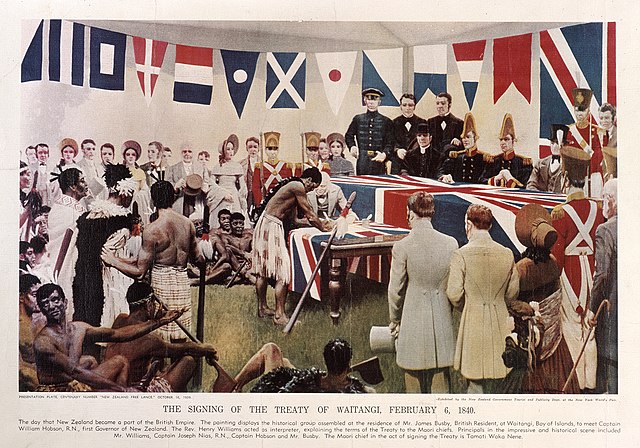The latter half of 2023 saw the end of a six-year-long liberal government in Aotearoa (New Zealand), whose last prime minister, Jacinda Ardern, recently resigned just 9 months before re-elections. Christopher Luxon, a former businessman and current leader of the National Party, is now the 42nd prime minister of the country. The indigenous Māori people of Aotearoa will now have to face the looming possibilities of colonial regression in the face of the new conservative government. Amidst the tumultuous handover of power from liberal to conservative, a gap in the political conjuncture widens as less attention is afforded to Te Pāti Māori (the Māori Party), the importance of upholding Māori rights and tikanga Māori (the practice and values of Māori knowledge).
In recent months, tensions ha Te Pati Maori (the Maori Party)ve risen due to this neglect to uphold Māori rights. In October of last year, protest group Te Waka Hourua led a hands-on demonstration at the Te Papa Museum’s (originally Colonial Museum) exhibit displaying a false translation of Te Tiriti o Waitangi (Treaty of Waitangi) claiming that the Māori people signed over their rights to sovereignty, land, and self-determination. The demonstration consisted of activists striking out the false English translation of Te Tiriti o Waitangi with spray paint, resulting in the arrest of 12 protesters.
Pere Huriwai-Seger, animal rights activist and co-founder of Aotearoa Liberation League, comprehensively debriefs viewers in an Instagram post covering the events of the Te Papa Museum demonstration. Huriwai-Seger frequently cites the fundamental issue of “colonial myths” and the manipulative power this 25-year-old false Te Tiriti o Waitangi translation has perpetrated in the perpetuation of such myths. The reason why this treaty is so significant lies in how its role is essential in the protection of Māori rights against English colonial occupation. Te Pati Māori even called upon people across the country to protest against Christopher Luxon’s election as prime minister in light of his intentions to violate Te Tiriti o Waitangi by changing government department names from Māori to English and stripping legislation of any references to the principles outlined in the Treaty.
Given these troubling developments, the pertinent administrative method of co-governance becomes increasingly crucial to the protection of Māori rights, and the recognition of such rights as being synonymous with human rights. Te Kāhui Tika Tangata Aotearoa’s (Human Rights Commission of New Zealand) promise of ka whakamana tāngata (a life of dignity for all) is currently under threat by Christopher Luxon’s new government and poses human rights issues deserving of global attention. Te Kāhui Tika Tangata describes co-governance as a ‘delegation of state power’ that permits Māori self-determination and the sharing of ‘decision-making power’ with the Crown (English monarchy). As an active colonial settler nation, co-governance must be in full practice to prevent further abuse of the ever-present colonial dynamics. An example of co-governance which Te Kāhui Tika Tangata provides is the integral role of Te Tiriti o Waitangi, applied in the co-management of resources (i.e., rivers and mountains).
In this regard, it is imperative to understand the elemental and ever-relevant importance of Te Tiriti o Waitangi as a constitutional document interwoven with human rights, Māori rights, and co-governance. By erasing reference to Te Tiriti o Waitangi, Christopher Luxon’s government will be perpetrating the de jure eradication of Māori rights, an entire Indigenous community’s access to human rights. Ka whakamana tāngata is not a mere catchy slogan, a life of dignity for all is common sense, a normalised concept that many too often take for granted. In this moment of uncertainty, ka whakamana tāngata is a reminder for all, especially Christopher Luxon and the new National government, to honour the basic commitment to human rights that is Te Tiriti o Waitangi.
Edited by Elena Lee

Amira Berdouk is in her first year at McGill University, currently pursuing a B.A. in East Asian Studies and International Development. Amira is a staff writer at Catalyst and is interested in (neo-) colonialism, political and cultural identity, and independence movements.

